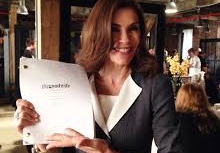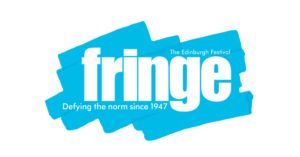So I see this as my getting to talk to you. More natter than talk, I suppose, and you’re definitely the best listener I know. But if one wanted to get technical about it, Self Distract is a blog. And earlier this week, I ran a workshop for writers, actors, musicians and journalists on how to make blogging part of your creative freelance career.
I’ve done this many times and I don’t think I’ve mentioned it to you because we’re not here to talk about work. This once, though, I need to tell you. Not because, as it turns out, I can’t remember the last time I laughed quite so much over Zoom even as all my video lights were burning me a new headache. And actually not because it is the last one.
Solely to spoil any nicely-constructed drama plan I might have, this week’s workshop was the penultimate for me. Next week is the last one I’m ever doing for this particular organisation and I suppose I could’ve waited until that was done, but I want to write to you while it’s still going. While this company is still live and active and doing great things. Until next week for me and until the end of the month for everyone.
I want to talk to you while there are these workshops, not when there were.
The organisation is the FEU, the Federation of Entertainment Unions. If you were a member of the Writers’ Guild, the Musicians’ Union, Equity or the NUJ, you got free training from the FEU as part of your membership. And such training. Day-long intensive workshops on how to do what we all need to do as freelancers across these disciplines. Finance training, for instance. Where else do freelancers get trained in the finance knowledge we absolutely have to have?
I’ve attended countless FEU sessions in person, over webinars, through their online e-learning system, everything. And I’ve also developed and delivered a lot of them. Blogging, vlogging, email marketing, productivity, technology, I may have missed some out. Each one built to tell people specific, practical things that they will use.
That’s been the thing for me. Practicality. I like working on the theory of writing, for instance, with writers but every attendee of an FEU workshop was doing this creative work for a living. They were giving up time they could, would and sometimes really should be spending on their business. What I showed them had to be useful and it had to be useful right now, or people would leave. It was wonderful.
It is wonderful. For another week.
The FEU secured funding recently, for once getting funding agreed for a long enough period that it could concentrate on creating more of these workshops and continuing to make them free for members. Then the UK government went nah, forget what we said. Some chap needs a few millions for a duck pond or something, doesn’t matter what, chaps have got to stick together, goodbye FEU.
I hope to run my FEU workshops in some form through my own company. I have to imagine or maybe it’s just that I have to hope that the various unions involved will try to run something like this some time.
But for now, they are gone. Or going. Next Wednesday is my last and, as it happens, it’s again about blogging. This week’s had 27 people in and there were about as many more wanting to get on it, so I’ve been asked to do a repeat.
It’s said that you don’t appreciate something until it’s gone. I’m not sure that’s entirely true. I know, for instance, that every day I walked in to work at BBC Television Centre I was conscious of the privilege. Same with BBC Pebble Mill. When I see a copy of Radio Times on a newsagent shelf, I’m proud to have worked on it and if I hadn’t appreciated it at the time, I wouldn’t have stayed as long as I did.
Same with the FEU. I think, to be fair, that what I’ve usually been conscious of is each individual workshop and how buoyant it’s made me feel. Today I’m thinking back over something like five years of them, that’s the difference.
And if I sound a bit miserable that this resource is being stopped, I am. But I’m also profoundly conscious that it’s got me countless hours working intensely with musicians, actors and journalists as well as other writers. You get siloed, even in a broad area like writing, and that sparking interaction with other creative freelancers is incredible. That interaction has helped me at least as much as the subjects and topics I’ve learned through the FEU.
It’s lifted me, actually. In great times and brutally bad ones, working with the people who run the FEU and working so closely with the people who attended, made me happy. I have no faith and no religion but I do believe a few things and one is that a rising tide lifts all boats. When something good happens to you, I feel great. When you, me, and all of us work together, we all benefit.
So would you do something for me, please? I’d like you to raise a mug of tea to the Federation of Entertainment Unions. And let you and me clink those mugs together especially for the three people there I worked with and for the most. Frances Dredge, Kate Willoughby and Muriel McClymont. I’ll see them all again, just you – or they – try to stop me.

